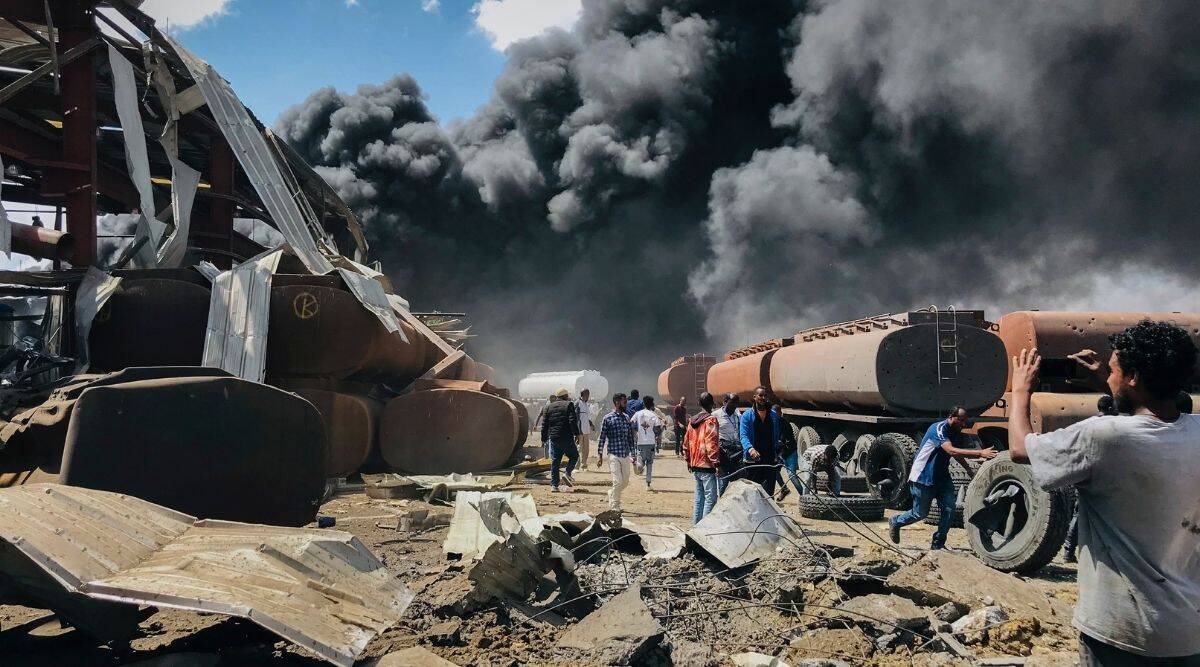UN flight thwarted as fighting grows in Ethiopia

A United Nations humanitarian flight to the Ethiopian region of Tigray, epicenter of a year-old war that threatens to cause deepening famine, was ordered to abort a landing Friday as government airstrikes hit the area for a fourth day.
The flight by the U.N. Humanitarian Air Service, bound for the Tigrayan capital, Mekelle, returned to the national capital, Addis Ababa, and all such flights were suspended, said Steve Taravella, a spokesperson for the World Food Program, the U.N. anti-hunger agency that manages the air service.
It was the first time a U.N. humanitarian flight had been forced to abandon a mission into the Tigrayan region because of airstrikes, said Gemma Connell, the top U.N. aid official for southern and eastern Africa.
“We’re obviously concerned about what has taken place today,” Connell said in a conference call with reporters. She said 11 humanitarian workers were aboard but did not elaborate on their work or the cargo they had carried.
Hours later, Martin Griffiths, the U.N.’s undersecretary-general for humanitarian affairs, issued an angry statement asserting that the organization had not been given any prior warning of the airstrikes on Mekelle and had received the necessary clearances for the flight.
“U.N. and nongovernmental organizations are making every effort to continue delivering assistance to millions of people in desperate need,” he said. “Conflict dynamics make this increasingly difficult.”
The aircraft’s landing was aborted as Ethiopian forces struck what the government described as a rebel military training center in a fourth day of aerial assaults, which appeared to be part of a major escalation in the conflict. Some nongovernment news accounts said a university campus in Mekelle had been hit. There was no independent confirmation of the target or the extent of casualties or damage.
The aborted flight punctuated the difficulties the U.N. faces in trying to provide food and other assistance to victims of a polarized conflict that is intensifying in Ethiopia, Africa’s second-most populous country, and that risks causing the worst famine in a decade.
U.N. officials have complained for months about their inability to send truck convoys of food and fuel into the conflict zone because of Ethiopian government security checkpoints and bureaucratic obstacles. Connell said that only 15% of the aid needed has reached its destination since July.
Fighting has intensified over the past two weeks since the Ethiopian government launched a major offensive intended to break the deadlock in the war. The Ethiopian military and local forces attacked Tigrayan rebels in the Amhara region, just south of Tigray.
Source: indianexpress.com
